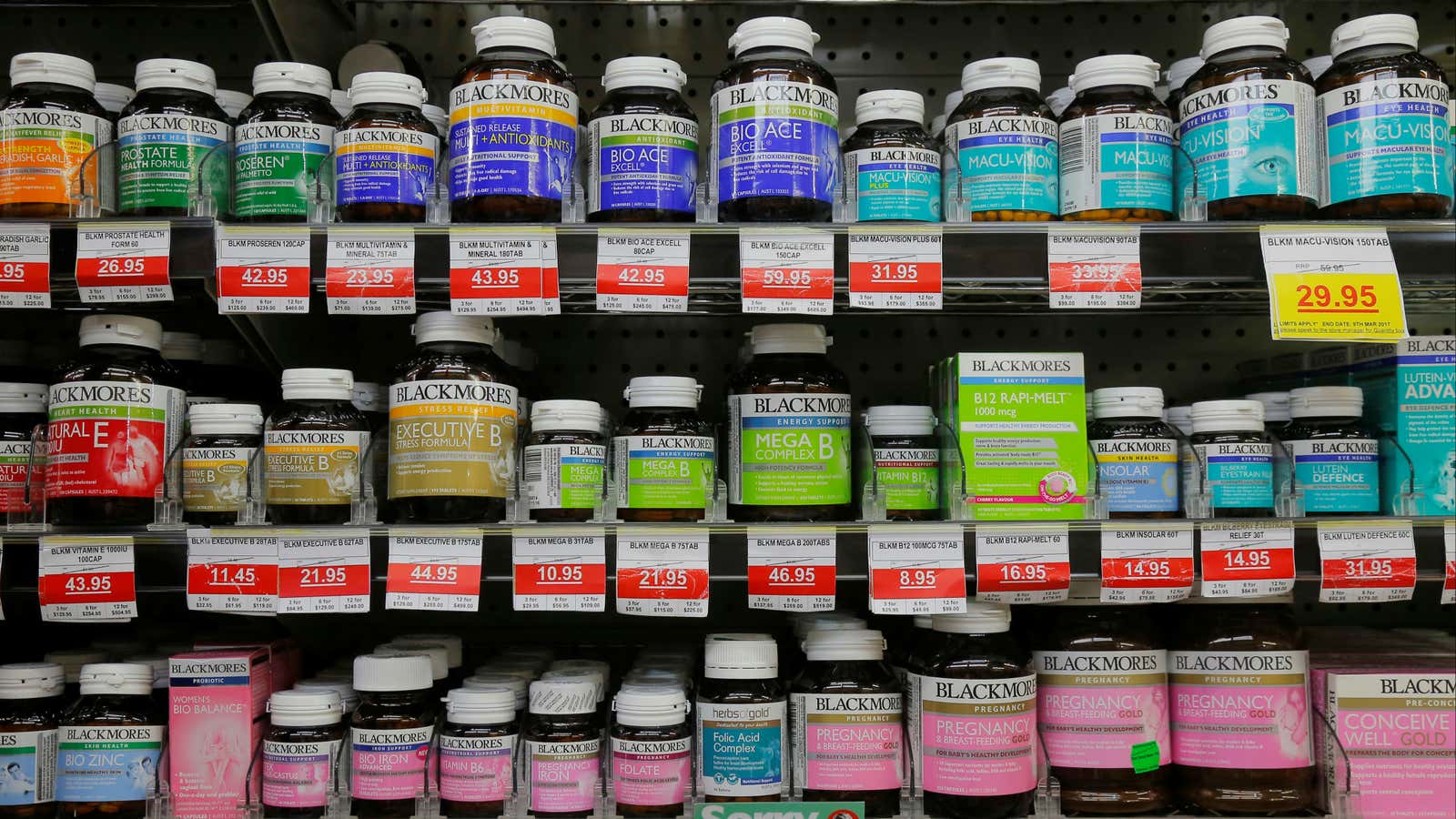If you’re taking vitamin D and calcium supplements to maintain strong bones and prevent fractures, it might be for naught.
A report released this month by a US government-appointed panel of doctors who have been analyzing research on taking those supplements—alone or together—baldly states: “The evidence does not support a finding of fewer fractures with vitamin D supplementation alone or with calcium.”
That finding runs counter to conventional wisdom about vitamin D and calcium, which has long been touted as a simple way to maintain a healthy skeletal system. Instead, the US Preventive Services Task Force recommended against taking certain levels of those supplements on a daily basis by postmenopausal women, in particular. In 2012 about 19% of US adults were taking a standalone vitamin D supplement and close to 35% were taking calcium supplements, the report said. Such figures demonstrate the enthusiasm for supplements even without supporting science.
In many cases, we still don’t know a lot about how supplements affect the body. That’s because a lot of the studies in which supplements are examined have been observational and don’t compare the actual supplement against a placebo in a controlled setting, according to Harvard Medical School. Often, observational studies don’t take into account a person’s exercise habits, their diets, or other important variables.
The need for caution with supplements been echoed in other parts of the world. In December 2017, the Journal of the American Medical Association published research showing that a review of medical literature in China also concluded that positive effects of vitamin D and calcium supplements are dubious.
In 2013, the Annals of Internal Medicine published an editorial saying it believes “the case is closed” on most mineral or vitamin supplements having no clear benefit, and in some cases being harmful. Physicians say there are better ways to prevent fractures. One is through exercise and balance activities to prevent falls in the first place.
Medical experts, including JoAnn Manson at Harvard Medical School, have said the best way to get important nutrients is to eat them in food. Calcium is contained in fortified orange juice, milk, yogurt, sardines, and tofu. And vitamin D can be found in milk, yogurt, tuna, and salmon.
